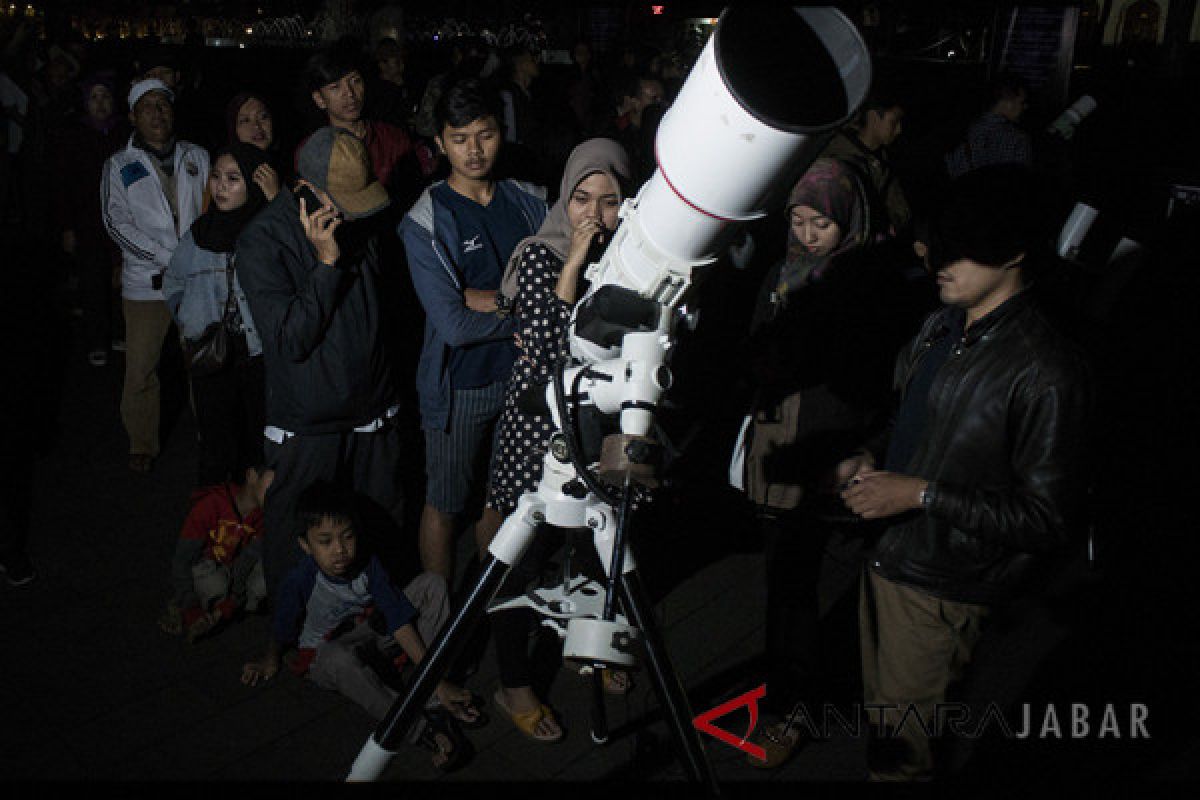Researcher at the BRIN Astronomy and Astrophysics Research Center, Thomas Djamaluddin, remarked that Jupiter, Mercury, Uranus, Mars, Neptune, and Saturn will be the six planets to momentarily line up along the ecliptic.
"The phenomenon of the planets lining up can be seen from overhead to the eastern horizon," he noted here on Friday.
Djamaluddin stated that Saturn would be visible to the naked eye like a bright star, while Neptune and Uranus can only be viewed with a telescope.
Meanwhile, planet Mars will appear as a slightly reddish star, Mercury will look like a dim star before sunrise, and Jupiter will also appear dim.
He revealed that only bright planets can be seen, especially when the sky is still dark.
"Saturn and Mars were just visible as points of light like stars. Jupiter will be rising near sunrise, so it probably would be hard to observe," he said.
The phenomenon of planetary line-up is a common occurrence, as planets near the Earth's orbit revolve around the Sun, so they are always around the ecliptic.
Djamaluddin said this phenomenon is rare, as the number of planets aligning is more than three. The phenomenon of six planets lining up would not have any impact on Earth.
When observed with the naked eye, the planet only looks like a point of light, like a star, but with a telescope, Saturn's rings can be seen.
All planets orbit the Sun for a certain period, with some orbiting for one year and some for more than a year. Their appearance in the sky can be calculated and modeled and thus can be predicted.
The phenomenon of planetary alignment can be forecast using free applications, such as Stellarium, which can simulate the phenomenon from the moment it rises to approximately above a person's head.
People oftentimes interpret myths around the phenomenon of planetary alignment as indicators of impending events. However, this is only based on their beliefs and not on scientific logic.
"Through the phenomenon of planets lining up, we can inspire students to study science, which is fun although complicated," he said.
Related news: BRIN warns of rising heat impact on Indonesia's food crop production
Related news: BRIN studies new environment-friendly lithium battery recycle method
Translator: Sugiharto Purnama, Katriana
Editor: Aditya Eko Sigit Wicaksono
Copyright © ANTARA 2024












